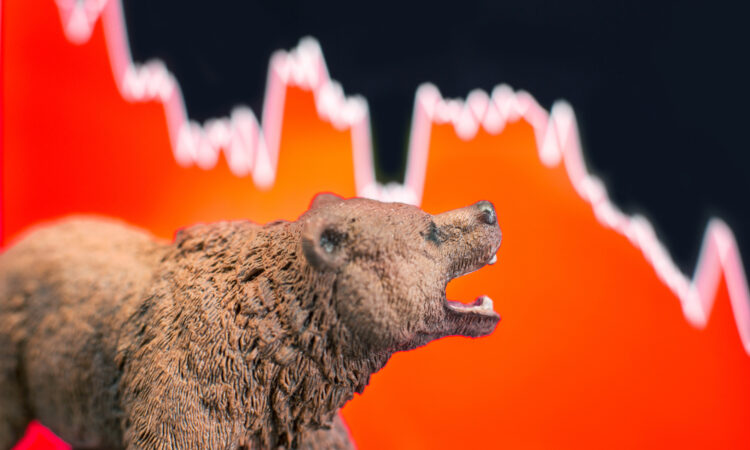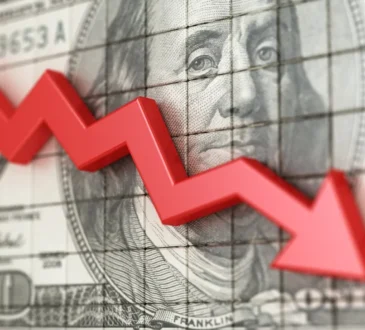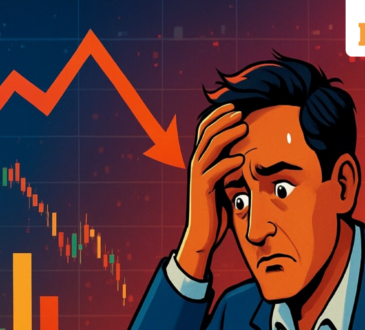The Stock Market Sounds an Alarm Seen Just 1 Time in 25 Years as Investors Get Bad News About the Economy

The combination is concerning economic data and a historically high valuation could spell trouble for the U.S. stock market.
S&P 500 (^GSPC +1.54%) companies are not only reporting third-quarter earnings that are better than Wall Street expected, but also earnings are on pace to increase by double digits for the fourth consecutive quarter.
Yet, the stock market wobbled during the first week of November. The S&P 500 fell 1.6% and the technology-heavy Nasdaq Composite (^IXIC +2.27%) tumbled 3%, notching its worst weekly performance since President Trump announced sweeping tariffs in April.
Investors are worried about the government shutdown, which had lasted for a record 40 days as November 9. They are also worried about the labor market; hiring slowed sharply over the summer and layoffs hit a 22-year high in October, according to outplacement firm Challenger, Gray & Christmas.
Meanwhile, consumer sentiment has fallen in four straight months and the stock market recently sounded a valuation-based alarm seen just once in the last 25 years. Read on to learn more.

Image source: Getty Images.
Consumer sentiment neared a record low in November
The University of Michigan Consumer Sentiment Index is tabulated each month based on surveys of at least 500 households. Participants are asked five questions about personal finances and business conditions. In November, the Consumer Sentiment Index recorded a preliminary reading of 50.3, the second worst result in history. The monthly surveys started nearly five decades ago.
The University of Michigan will revise that number when more data is available later in the month, so the November number could improve. But it could also get worse. The index gave a preliminary reading of 55 in October, but that figure was later revised down to 53.1. Consumer sentiment has now deteriorated in four consecutive months.
The University of Michigan also reported a worsening in year-ahead inflation expectations. Consumers expect inflation to hit 4.7% in the next 12 months, a tenth of a percent higher than the previous month and well above the five-year average of 4.1%. That validates concerns recently raised by many businesses: 42% of S&P 500 companies cited inflation as an issue during their latest earnings calls, up 6 points from the prior quarter.

Today’s Change
(1.54%) $103.63
Current Price
$6832.43
Key Data Points
Market Cap
$0B
Day’s Range
$6770.56 – $6841.32
52wk Range
$4835.04 – $6920.34
Volume
3.1B
Avg Vol
0
Gross Margin
0.00%
Dividend Yield
N/A
The stock market sounds an alarm seen just once in the last 25 years
In late October, the S&P 500 achieved a forward price-to-earnings (PE) ratio of 23.1. That is a very expensive valuation. In fact, the index has only recorded a forward PE ratio above 23 on one other occasion during the last 25 years, according to FactSet Research.
The S&P 500’s forward PE last topped 23 in September 2020. Investors were overly confident in the Covid-19 recovery as the government pumped stimulus into the economy. Stocks continued to grind higher for several months, but scorching inflation and aggressive interest rate hikes from the Federal Reserve eventually dragged the major U.S. stock market indexes into bear markets.
- S&P 500: After peaking in January 2022, the index dropped 25% by October 2022.
- Nasdaq Composite: After peaking in November 2021, the index fell 36% by December 2022.
- Dow Jones Industrial Average: After peaking in January 2022, the index fell 22% by September 2022.
Investors can learn an important lesson here. While an elevated forward PE ratio may not portend dismal returns in the immediate future, it does suggest a substantial drawdown will happen eventually. Of course, that is always true because drawdowns are a natural part of investing. But we may get there sooner rather than later.
Consumer spending accounts for about two-thirds of gross domestic product (GDP), making it the primary engine of economic expansion. If inflation continues to worsen and the labor market continues to weaken, consumers sentiment may remain supressed. That would be bad news for the economy and the stock market. Investors should hope for the best but mentally prepare for the worst.




